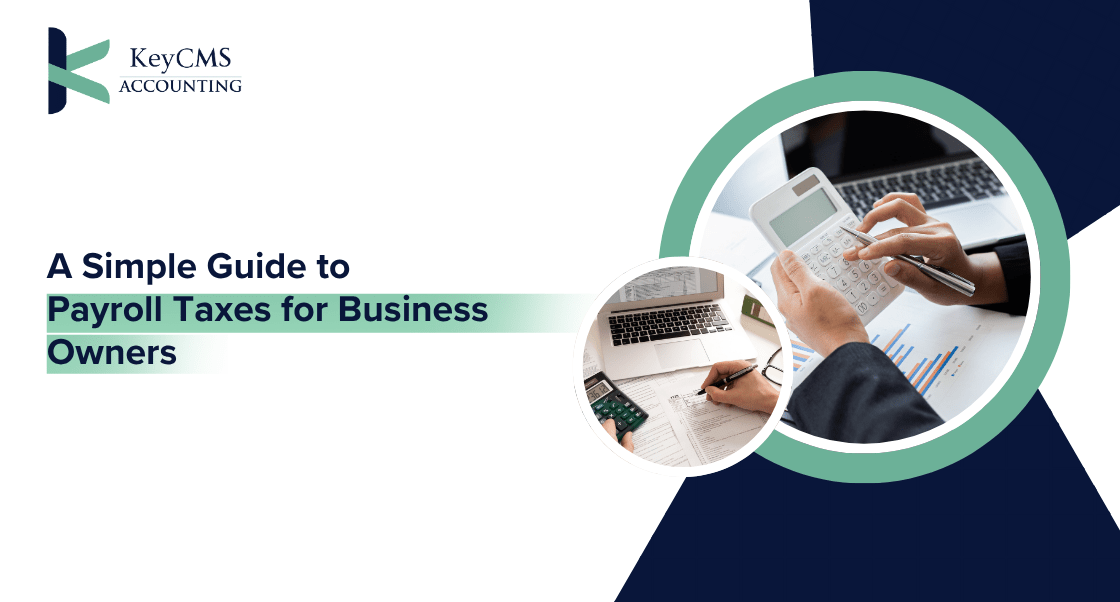Running a business comes with many responsibilities, and one of the most important is handling payroll correctly. Beyond paying employees on time, employers must also ensure compliance with payroll tax laws. Missteps can result in hefty penalties, damaged employee trust, and unnecessary stress.
This guide breaks down payroll tax in simple terms, helping business owners understand what it is, why it matters, and how to manage it effectively.
What Is Payroll Tax?
Payroll tax refers to the taxes that employers withhold from employees’ wages and those paid directly by employers. These taxes fund federal programs like Social Security and Medicare, as well as state and local initiatives.
In short, payroll taxes serve two purposes:
- Employee Contributions: Taken out of each paycheck (e.g., Social Security, Medicare).
- Employer Contributions: Paid by the business to match certain employee contributions and cover unemployment insurance.
Key Components of Payroll Tax
Understanding the major components of payroll tax is crucial for compliance. Here’s a breakdown:
1. Federal Income Tax Withholding
Employers must withhold federal income taxes from employee paychecks based on the information provided on Form W-4. The IRS provides tax tables to guide how much should be withheld.
2. Social Security and Medicare Taxes (FICA)
Known as FICA taxes, these fund Social Security and Medicare programs.
- Social Security tax: 6.2% of wages up to a certain wage cap, paid by both employer and employee.
- Medicare tax: 1.45% of wages, with no cap, also split between employer and employee.
- Additional Medicare tax: Employees earning above a threshold (e.g., $200,000 for individuals) may owe an extra 0.9%, withheld by the employer.
3. Federal Unemployment Tax (FUTA)
Employers pay FUTA to fund unemployment benefits. Unlike other payroll taxes, FUTA is not deducted from employee wages.
4. State and Local Taxes
Many states and some localities impose their own payroll taxes, including state unemployment insurance (SUTA) and income taxes. Requirements vary widely depending on where your business operates.
Why Payroll Taxes Matter for Business Owners
1. Legal Compliance
The IRS and state agencies strictly enforce payroll tax laws. Failure to withhold and remit taxes can result in serious fines or even criminal charges.
2. Employee Trust
Employees rely on accurate payroll. Mistakes in tax withholding can create frustration, reduce morale, and cause financial strain for workers.
3. Financial Stability
Proper payroll tax management prevents costly penalties, ensuring business funds are used wisely and cash flow remains predictable.
Common Payroll Tax Mistakes
Even well-meaning business owners can run into issues. Some common mistakes include:
- Misclassifying workers – Mixing up employees and independent contractors can lead to tax errors.
- Missing deposit deadlines – Payroll taxes must be paid on strict schedules. Late payments result in penalties.
- Incorrectly calculating withholdings – Using outdated IRS tables or failing to update employee information leads to errors.
- Poor recordkeeping – Payroll records must be maintained for several years for audits and compliance.
- Not staying updated on laws – Tax rates and rules change frequently at federal, state, and local levels.
How to Stay Compliant with Payroll Taxes
1. Use Payroll Software or Services
Automated payroll systems can calculate, withhold, and remit taxes accurately. Many also generate reports for compliance and audits.
2. Stay Updated on Tax Regulations
Sign up for IRS updates, follow state labor agencies, and review annual tax changes to ensure compliance.
3. Separate Payroll Accounts
Consider maintaining a separate bank account solely for payroll and taxes. This prevents accidental misuse of funds.
4. Work with a Payroll Provider or Accountant
Outsourcing payroll to professionals ensures accuracy and frees up your time to focus on growing your business.
5. Regularly Audit Payroll Processes
Periodic reviews help catch errors early and keep processes compliant.
The Benefits of Outsourcing Payroll Tax Management
Many growing businesses choose to outsource payroll. Here’s why:
- Time savings – Business owners can focus on core operations instead of complex tax rules.
- Accuracy – Professionals use up-to-date systems to avoid costly errors.
- Compliance confidence – Payroll providers keep up with changing laws, reducing legal risk.
- Employee satisfaction – Timely and accurate pay boosts morale and retention.
Final Thoughts
Payroll tax may seem daunting, but understanding the basics can help business owners avoid costly mistakes. The key is staying compliant, keeping accurate records, and leveraging tools or experts when needed.




